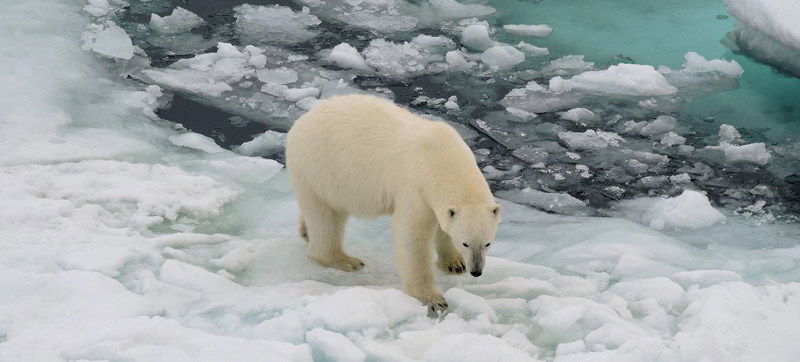 Polar
Polar
Polar scientists call for more research and observation into rapid sea ice reduction
New York: Sea ice is reducing at an unprecedented rate, prompting polar scientists to call for an urgent increase in research and observation, the World Meteorological Organization (WMO) said on Friday.
The rapid changes in the Artic and Antarctic have serious implications for these regions, and for global weather and climate.
The alert follows expert meetings held earlier this month in Europe.
Scientists are concerned
Sea ice extent is among key climate indicators used by WMO in its State of the Global Climate reports. Others include greenhouse gases, sea level rise, and ocean heat and acidification.
Since 2016, Antarctic sea ice has declined at a rate not observed since the beginning of satellite records in the 1970s, the UN agency said – a phenomenon that is concerning scientists and which is currently not well understood.
Antarctic sea-ice extent reached another record low in February following previous record lows in 2017 and last year.
“This prompts grave concerns about the change in the state of Antarctic sea ice within the wider Earth system,” WMO said. “Even now as mid-winter approaches, Antarctic sea-ice extent remains at record low values.”
Ice-free regions
Antarctic landfast ice also experienced a significant loss in 2022 - the first time since observation began nearly 45 years ago.
Landfast ice refers to ice that is attached to the shore, and “some coastal regions are now ice-free where they never were observed to be before.”
Meanwhile, a pattern of “low Arctic sea ice minima” has continued this year. WMO noted that the past 16 years marked the lowest 16 year period on record.
Last July, a notable ice-free area opened near the North Pole and persisted for several weeks. “Thinner, less compact sea ice has continued to replace older, thicker ice in this region over the last several years,” WMO said.
Fill information gaps
In response to these changes, polar scientists have called for sustained long-term observatories and research to fill the information gaps in both polar sea-ice zones.
More than 60 experts attended the annual meetings of the Scientific Committee on Antarctic Research/Climate and Cryosphere Sea ice Working Group, held earlier this month in Germany.
The organizations are affiliated with the World Climate Research Programme (WCRP), which is co-sponsored by WMO.
Attendees from 41 institutions and 14 countries took part in the meetings, which coincided with the Antarctic Treaty Consultative Meeting held in Finland.
WMO Secretary-General Petteri Taalas highlighted the central role of the Antarctic in the global climate system and the importance of reducing greenhouse gas emissions.
The concluding document, the Helsinki Declaration on Climate Change in the Antarctic, stressed the global implications of climate change and the need for urgent action to protect Antarctica.
Support Our Journalism
We cannot do without you.. your contribution supports unbiased journalism
IBNS is not driven by any ism- not wokeism, not racism, not skewed secularism, not hyper right-wing or left liberal ideals, nor by any hardline religious beliefs or hyper nationalism. We want to serve you good old objective news, as they are. We do not judge or preach. We let people decide for themselves. We only try to present factual and well-sourced news.






